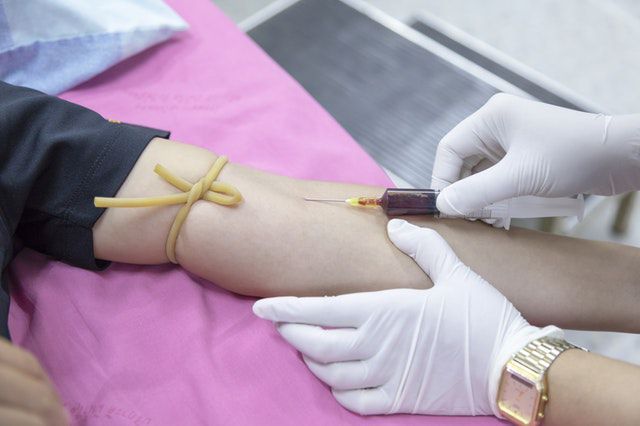Viral fever Isn't A Disease, It's The Symptom Of An Underlying Infection
Let's begin with the most important fact of all-
Viral fever isn't a disease, it's the symptom of an underlying infection.
Fever is an indication that our body is fighting with germs and infections. When infections are due to viruses, the fever which follows the infection is called as Viral fever.
Why does the fever occur?
Answer is, that in order to fight viral infections, the body's immune system begins to work harder to produce a response against the virus.
Rise in body temperature is one such protective immune response. When the body temperature increases, it becomes less hospitable for the viruses to live or survive.
What causes Viral fever?
Viral Infections spread fast. Staying close to an infected person isn't a good idea at all if you wish to stay healthy. The closer you are to an infected person, the higher are your chances of catching it.
Viral infections are spread through -
- Inhalation (cold, flu)
- Exchange of body fluids and blood (Hepatitis B, HIV)
- Animal bite (Rabies)
- Ingestion of contaminated food and drinks. (Enterovirus)
Taking the example of cold and flu, once the virus is ejected into the air as tiny sprays by an infected person (through sneezing, yawning, talking or coughing), it takes anywhere from 16 to 48 hours for the healthy person to get sick if he is exposed to the virus.
Here’s How to Prevent Viral Fever from Spreading -
- Avoiding being physically close to a sick person.
- Avoiding any activity that involves the exchange of body fluids with the sick person.
- Refrain from traveling to an area where a certain infection is prevalent.
- Avoid working close to sick people.
- Refrain from having unprotected sex. (During Infection prone seasons)
- Strictly avoid sharing or being accidentally treated by used needles.
- Avoid being close to slaughterhouses or infected animals.
- Prevent your building from being infested with pests and rats.
Small children and old people with underdeveloped or weak immune system are at a very high risk of catching an infection.
Viral infection Symptoms (Must Watch Out for These!)
The most important symptom of viral infection is fever. Other symptoms that can accompany fever are -
- Chills
- Fatigue
- General body weakness
- Nausea
- Vomiting
- Dizziness
- Headache
- Painful tonsils
- Running nose
- Nasal congestion
- Chest congestion
- Burning sensation in eyes
- Diarrhoea
Diagnosis of Viral Infection (Run for a Doctor if You’re Suspicious!)
Very often, your symptoms make it quite obvious that you can have a fever due to infection. However one can not comment on whether the infection is bacterial or viral unless certain tests are done to identify the same.

Since the symptoms of viral fever overlap the symptoms of several other conditions, your doctor can ask for a blood test to find out whether your ailments are due to viral infection or not.
It is important to differentiate whether the fever is bacterial or viral as unlike bacterial infections, antibiotics cannot be used to treat viral ones.
Antibiotics cannot kill Viruses (Always Remember This!)
Self-medication and overuse of antibiotics can lead to the destruction of useful bacteria in the gut giving rise to acidity as well as other complications such as liver and kidney damage.
If you are experiencing a fever, it's always a wise decision to visit your doctor. Your doctor will examine you and conduct the necessary tests to determine the underlying cause of your fever.
Complications of Viral Fever (How bad it could get!)
If the causative agent of a viral infection is an aggressive type of virus then things can get complicated and serious.
Arbovirus infection can cause bleeding from the skin, internal organs, mouth or ears. In such cases, if the medical intervention is not done timely and proper treatment isn't provided, it can even lead to death.
Meet your doctor if you have fever, report if the fever is uncontrollable and there is no symptomatic relief. Don't wait for your condition to deteriorate. Act as soon as you feel something is wrong so that your doctor can help you timely.
Severe cases of viral infection and viral fever can lead to the following complications -
- Severe gastric upset
- Dehydration
- Delirium
- Hallucinations
- Shock
- Seizures
- Kidney failure
- Respiratory fever
- Liver failure
- Blood infection /sepsis
Viral Fever Treatment (Antibiotics are useless!)
As antibiotics don’t work on viral infections, your doctor can prescribe antiviral drugs which should be taken in correct dosage and gaps.
Other things which can bring relief are -
- Drinking plenty of fluids.
- Sitting in lukewarm baths.
- Resting as much as possible.
Your doctor will also prescribe some drugs which will help reduce the fever and discomfort of other symptoms. All the drugs should be taken under the supervision and prescription of your doctor.
Self-medication should not be done.
However, here’s some Home Remedies if You Just had Cold
When should I see the doctor?
Viral fever is usually controllable, however, If your body temperature reaches 103°F /39° C or higher, inform or visit your doctor right away.
If your symptoms worsen meet your doctor so that proper treatment can be started. Look out for -
- Severe headache
- Frequent vomiting
- Pain in neck while bending forward
- Seizures
- Hallucinations
- Convulsions
- Rash
Don't take the matter in your own hands if you have a high fever and these symptoms. Self-medication, if gone wrong can worsen your condition. Let your doctor and health care provider help you out.
Managing fever in babies (Be Extra Cautious!)
Checking your baby's temperature through touch alone is not an accurate method of knowing whether your baby has a fever or not. Always use a thermometer if you suspect your baby's temperature is high and he may have a fever.
You will notice that your baby is uncomfortable, lethargic and is breathing faster. He/she can look dehydrated and tired.
Make sure that -
- Baby isn't overdressed.
- Offer fluids regularly.
- Breastfeed properly.
- Comfort with a lukewarm bath.
- Keep baby in a comfortably cool room.
Symptoms to look out for when your baby has fever -
- Vomiting
- Seizure
- Unexplained rash
- Diarrhea
In babies, a temperature over 100°F is considered as fever, however, a rectal temperature of 104° F / 38°C should be taken as an alarming call.
Note that newborns have difficulty regulating their body temperature.
- If your baby is younger than 2 months and the rectal temperature is higher than 104°F/ 38°C call your pediatrician right away.
- If your baby is cold and his temperature is less than 97°F/36°C, report to your pediatrician immediately.
Meet your pediatrician right away so that your baby can be treated. Don't self-medicate. Drugs should be given according to the doctor's prescription in proper dosage amount, taking recommend gaps
Keep a record of your baby's temperature using a thermometer to ensure that it is declining back to normal or not.
Conclusion (Things You Should Remember!)
Fever can be a frightening thing to deal with, however, with proper treatment, it can be managed easily.
If you are concerned about the duration of Viral fever, it usually subsides in a few days or a week with proper treatment, care and rest. Always inform your doctors if your symptoms worsen and fever gets high. Your doctor will try his best to ensure that your fever subsides and your condition gets better.














